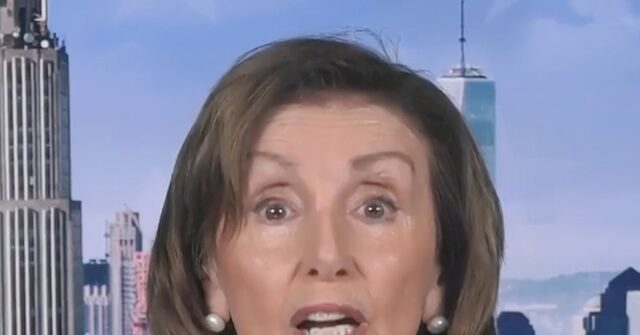In what could only be described as a moment of political thunder rolling across the Potomac, House Representative Nancy Pelosi launched a pointed critique of former President Donald Trump’s legacy, specifically regarding his impact on America’s youth.
Like a storm gathering force on the horizon, Pelosi’s remarks emerged during a discussion about California’s redistricting initiative, Proposition 50. But the veteran lawmaker quickly steered the conversation toward what she clearly viewed as a more pressing concern.
“Donald Trump stands as the worst president for children in America’s history,” Pelosi declared, her voice carrying the weight of her decades in public service. “And folks, that’s saying something.”
The California Democrat, who has long positioned herself as a champion for children’s causes, laid out her case with the methodical precision of a prosecutor before a jury. She pointed to what she characterized as troubling patterns in Trump’s policies affecting everything from school lunch programs to environmental protections.
“When you look at the whole picture – the food they eat, their healthcare, their education, their families’ economic security, environmental safety, and protection from gun violence – the evidence speaks for itself,” Pelosi explained, her words carrying that particular mix of determination and concern that often marks watershed moments in political discourse.
The timing of Pelosi’s remarks, coming amid heated debates over redistricting and election integrity, speaks volumes about the broader political landscape. Like a Texas windstorm that kicks up without warning, her statement shifted the conversation from procedural matters to fundamental questions about governance and priorities.
For those who’ve spent time in the marble halls of Washington, this kind of pivot is familiar territory. But there’s something different here – a rawness in Pelosi’s assessment that cuts through the usual political static like a clear signal on a stormy night.
The Democratic leader’s comments reflect a growing tension between competing visions for America’s future, particularly regarding policies affecting young Americans. It’s the kind of fundamental disagreement that, like a fault line running beneath the surface, occasionally breaks through with seismic force.
“I always tell people to know their ‘why’ – why they’re in politics,” Pelosi continued, her voice taking on the tone of someone sharing hard-earned wisdom. “My ‘why’ has always been the children.”
As Washington continues to grapple with these issues, Pelosi’s words serve as a reminder that in American politics, like in life itself, the stakes are always highest when they involve the next generation. And in this particular political season, those stakes seem to be rising higher than a Gulf Coast tide before a storm.


